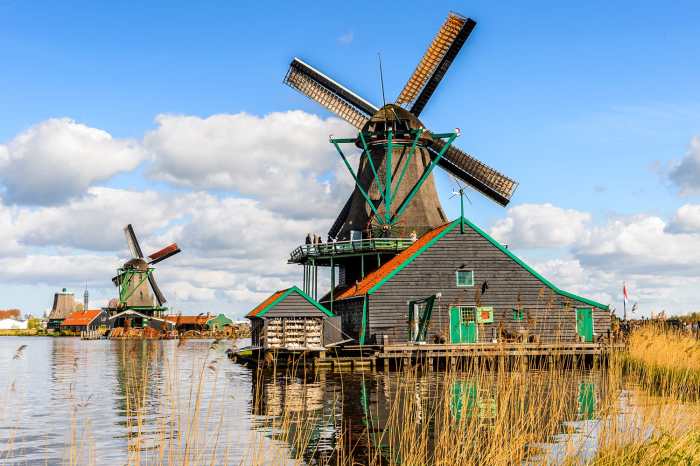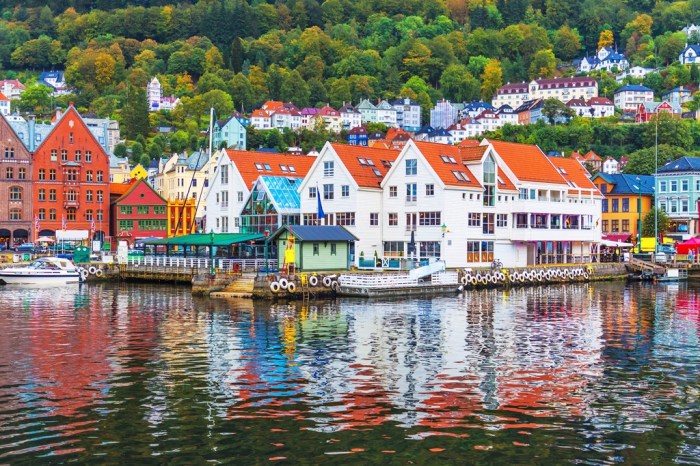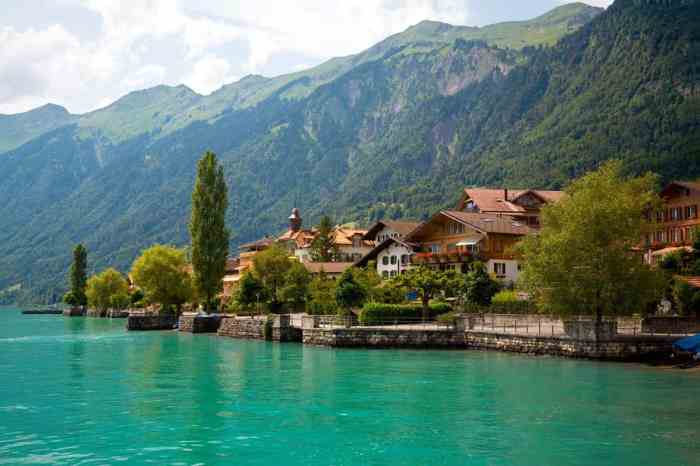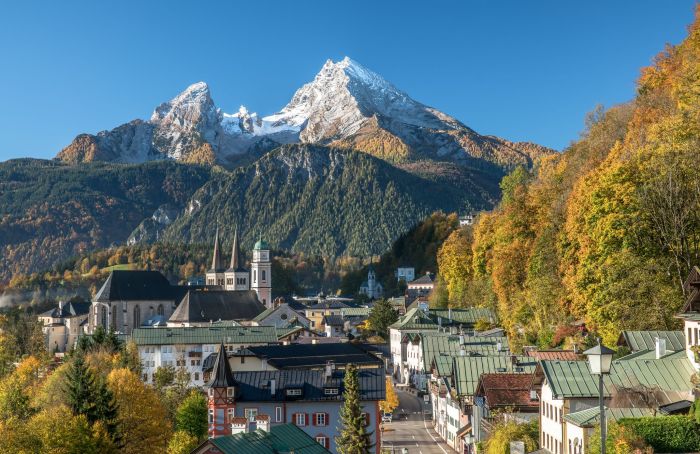Top 10 Places To Visit In Greece
Top 10 Places To Visit In Greece – it’s a phrase that conjures up images of ancient ruins, sun-drenched beaches, and vibrant culture. Greece is more than just a travel destination; it’s a journey back in time, a chance to explore the birthplace of democracy, philosophy, and art.
From the iconic Acropolis in Athens to the picturesque islands scattered across the Aegean Sea, Greece offers a diverse range of experiences for every type of traveler.
Whether you’re a history buff eager to walk in the footsteps of ancient civilizations, a beach bum seeking relaxation and sun, or an adventurous soul looking for outdoor thrills, Greece has something to offer. This captivating land promises a unique blend of history, culture, and natural beauty, leaving you with memories that will last a lifetime.
The Enchanting Land of Greece
Greece, a land steeped in ancient history, breathtaking landscapes, and vibrant culture, has captivated travelers for centuries. From the iconic Acropolis in Athens to the sun-drenched islands of the Aegean Sea, Greece offers a unique blend of timeless beauty and modern charm.
Its azure waters, pristine beaches, and picturesque villages invite you to explore a world where myths and legends come alive.The allure of Greece lies in its ability to transport you to a bygone era, where ancient civilizations thrived and left an indelible mark on the world.
Whether you’re strolling through the ruins of Delphi, marveling at the Parthenon, or discovering hidden gems in the Cyclades, Greece offers a journey of discovery that will ignite your imagination and create lasting memories.
Exploring the Rich History and Culture
Greece’s history is a tapestry woven with threads of ancient empires, legendary heroes, and philosophical thought. The country is home to some of the most significant archaeological sites in the world, offering a glimpse into the past and its enduring influence on the present.
- The Acropolis in Athens: This iconic hilltop citadel is a testament to the architectural genius of the ancient Greeks. The Parthenon, dedicated to the goddess Athena, is the most prominent structure on the Acropolis and a symbol of Athenian power and glory.
- Delphi: Situated on Mount Parnassus, Delphi was once considered the center of the world and a place where the Oracle of Delphi delivered prophecies. The ruins of the Temple of Apollo, the theater, and the stadium offer a glimpse into the ancient world of religious rituals and athletic competitions.
- The Minoan Palace of Knossos: Located on the island of Crete, Knossos was the center of the Minoan civilization, known for its advanced culture and artistic achievements. The palace, with its labyrinthine corridors and intricate frescoes, is a testament to the Minoans’ ingenuity and artistry.
Greece is definitely a must-see, with its ancient ruins, stunning beaches, and delicious food. But if you’re looking for a different kind of European adventure, you might want to check out Top 10 Places To Visit In Bavaria. It’s got everything from fairytale castles to towering mountains, and the beer is pretty amazing too.
Of course, nothing beats a Greek sunset, but Bavaria is a close second.
Ancient Wonders: Stepping Back in Time
Greece is a land steeped in history, with ancient ruins and archaeological sites that transport visitors back in time. These sites offer a glimpse into the lives, beliefs, and achievements of the people who once inhabited this region. From the iconic Acropolis to the mystical Delphi, Greece’s ancient wonders are a testament to the enduring legacy of its past.
The Acropolis of Athens
The Acropolis, meaning “high city,” is a hilltop citadel in Athens that has been inhabited since the Neolithic period. It is home to some of the most iconic and well-preserved ancient Greek structures, including the Parthenon, the Erechtheion, and the Temple of Athena Nike.
- The Parthenon, dedicated to the goddess Athena, is a masterpiece of Doric architecture. Its majestic columns and intricate sculptures have made it a symbol of classical Greece. It was built in the 5th century BCE and was originally used as a temple.
Today, it is a UNESCO World Heritage Site and a testament to the architectural brilliance of the ancient Greeks.
- The Erechtheion, located on the north side of the Acropolis, is a temple dedicated to Athena and Poseidon. It is famous for its Caryatids, six female figures that serve as columns, and its intricate Ionic architecture.
- The Temple of Athena Nike, a small but elegant temple, stands at the entrance to the Acropolis. It is dedicated to Athena, the goddess of victory, and features a beautiful frieze depicting scenes of battle and triumph.
Ancient Delphi
Delphi, nestled in the slopes of Mount Parnassus, was a significant religious and cultural center in ancient Greece. It was home to the Oracle of Delphi, a priestess who was believed to be able to communicate with the god Apollo.
Pilgrims from all over Greece would travel to Delphi to seek the oracle’s advice on matters of war, politics, and personal life.
- The Temple of Apollo, built in the 6th century BCE, was the most important structure in Delphi. It housed the oracle and was a place of pilgrimage for the ancient Greeks.
- The Treasury of the Athenians, a small building dedicated to Athena, was built by the Athenians to commemorate their victory over the Persians in the Battle of Marathon.
- The Stadium, a large open space, was used for athletic competitions and religious festivals.
The Palace of Knossos
The Palace of Knossos, located in Crete, is the largest and most well-preserved Minoan palace. It was built around 1700 BCE and served as the center of the Minoan civilization. The palace is known for its intricate architecture, including its labyrinthine corridors, elaborate frescoes, and advanced plumbing system.
- The Throne Room, located in the central part of the palace, was where the Minoan king would receive visitors and conduct official business. It features a large throne and a beautiful fresco depicting a bull leaping.
- The Grand Staircase, a magnificent staircase with elaborate decorations, connected the different levels of the palace.
- The Frescoes, which adorn the walls of the palace, provide valuable insights into the lives, beliefs, and culture of the Minoans. They depict scenes of daily life, religious rituals, and sporting events.
Island Hopping
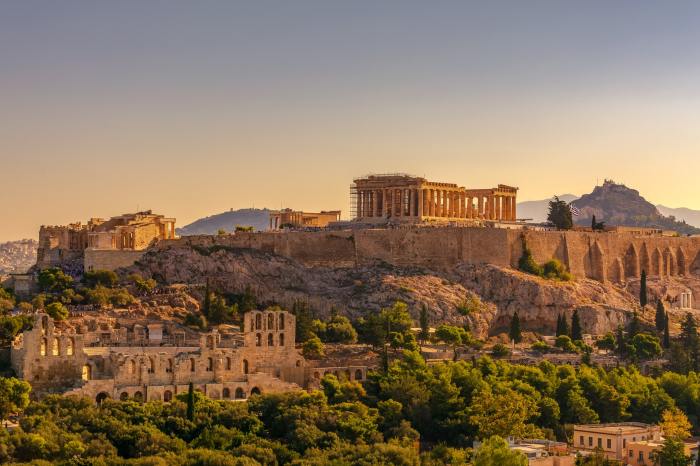
Greece is renowned for its stunning islands, each with its own unique charm and allure. Island hopping is a popular way to experience the diverse beauty of the Aegean Sea, allowing you to explore ancient ruins, relax on pristine beaches, and immerse yourself in local culture.
Top Islands in Greece
The Aegean Sea is home to hundreds of islands, each offering a unique experience. Here are some of the most popular islands for island hopping:
| Island | Unique Characteristics | Popular Activities | Recommended Accommodation |
|---|---|---|---|
| Santorini | Iconic white-washed villages, stunning sunsets, volcanic landscapes | Exploring the caldera, visiting the ancient Akrotiri archaeological site, enjoying a sunset cruise, wine tasting | Luxury hotels with caldera views, charming cave houses, boutique hotels |
| Mykonos | Vibrant nightlife, chic boutiques, beautiful beaches | Partying at world-famous clubs, shopping at designer stores, relaxing on beaches, exploring the picturesque town of Mykonos | Luxury resorts, boutique hotels, charming guesthouses |
| Crete | Diverse landscapes, historical sites, delicious cuisine | Hiking in Samaria Gorge, visiting the Palace of Knossos, exploring the Venetian harbor of Chania, enjoying traditional Cretan food | Luxury resorts, charming guesthouses, traditional farmhouses |
| Rhodes | Medieval city, picturesque villages, beautiful beaches | Exploring the medieval city of Rhodes, visiting the ancient Acropolis of Lindos, relaxing on the beaches of Faliraki and Tsambika, enjoying traditional Greek food | Luxury resorts, charming guesthouses, traditional hotels |
Santorini
Santorini is a volcanic island known for its dramatic landscapes, iconic white-washed villages, and breathtaking sunsets. The island’s caldera, formed by a massive volcanic eruption, is a natural wonder. The villages of Oia and Fira are perched on the cliffs overlooking the caldera, offering stunning views of the Aegean Sea.
Visitors can explore the ancient Akrotiri archaeological site, a Bronze Age settlement buried by volcanic ash. Santorini is also known for its delicious wines, produced from vineyards clinging to the volcanic slopes.
Mykonos
Mykonos is a cosmopolitan island known for its vibrant nightlife, chic boutiques, and beautiful beaches. The island’s capital, Mykonos Town, is a maze of white-washed streets lined with shops, restaurants, and bars. Mykonos is also home to some of the most beautiful beaches in Greece, including Paradise Beach, Super Paradise Beach, and Elia Beach.
Visitors can enjoy a variety of water sports, including swimming, sunbathing, and windsurfing. Mykonos is also a popular destination for gay travelers, with a vibrant gay scene.
Crete
Crete is the largest island in Greece and is known for its diverse landscapes, historical sites, and delicious cuisine. The island is home to mountains, gorges, beaches, and ancient ruins. The Samaria Gorge, a UNESCO World Heritage Site, is a popular hiking destination.
The Palace of Knossos, the ruins of the Minoan civilization, is a must-see for history buffs. Crete is also known for its delicious cuisine, including traditional dishes like moussaka, pastitsio, and dakos.
Cultural Immersion
Greece is not just about ancient ruins and stunning beaches. It’s a vibrant culture with a rich history, welcoming people, and a way of life that will leave a lasting impression. Experience the warmth of Greek hospitality, immerse yourself in the country’s traditions, and discover the beauty of everyday life in Greece.
Traditional Festivals and Events
Attending a traditional Greek festival is a great way to experience the country’s culture. These events often feature music, dancing, food, and drink. Some of the most popular festivals include:
- Easter: This is a major religious holiday in Greece, and celebrations are held throughout the country. The Easter Sunday processions are particularly impressive, with people carrying lit candles and singing hymns.
- Panagia’s Feast Day: This celebration honors the Virgin Mary, and is often held in villages and towns throughout Greece. There are usually processions, feasts, and music and dancing.
- The Grape Harvest Festival: Held in September in many wine-producing regions, this festival celebrates the grape harvest with wine tastings, music, and dancing.
Exploring Local Markets
Local markets are a great way to get a sense of everyday life in Greece. You’ll find fresh produce, local crafts, and traditional foods. Some of the most popular markets include:
- The Central Market in Athens: This bustling market is a great place to find everything from fresh fruit and vegetables to spices and seafood.
- The Municipal Market in Thessaloniki: This market is a popular destination for both locals and tourists, and offers a wide variety of products, including fresh produce, meat, fish, cheese, and bread.
- The Flea Market in Piraeus: This market is a great place to find antiques, vintage clothing, and other unique items.
Sampling Authentic Cuisine
Greek cuisine is known for its fresh ingredients, simple flavors, and generous portions. Some of the must-try dishes include:
- Moussaka: This layered casserole is made with eggplant, ground meat, and béchamel sauce.
- Souvlaki: This popular street food is made with grilled meat, often pork or chicken, and served on a pita bread with tzatziki sauce.
- Dolmades: These are grape leaves stuffed with rice, herbs, and sometimes meat.
Greek Mythology and Its Influence
Greek mythology is an integral part of the country’s culture and has influenced art, literature, and daily life. The stories of gods and goddesses, heroes and monsters, are still told today and continue to inspire people around the world.
- Olympian Gods: The twelve Olympian gods, including Zeus, Hera, Poseidon, and Athena, are some of the most well-known figures in Greek mythology. Their stories are often depicted in art and literature, and their names are used in everyday language.
- Heroes and Monsters: Greek mythology is also full of heroes, such as Hercules and Odysseus, and monsters, such as Medusa and the Minotaur. These stories are often told to teach lessons about courage, wisdom, and the dangers of pride.
- Influence on Art and Literature: Greek mythology has had a profound influence on art and literature throughout history. From ancient Greek sculptures to modern-day films, the stories of the gods and goddesses continue to inspire artists and writers.
Greek Hospitality
The Greek people are known for their warm and welcoming nature. They are proud of their culture and traditions, and they love to share them with visitors. You’ll find that the locals are always happy to help you with directions, recommendations, or just a friendly chat.
“The Greeks are known for their hospitality. They will always offer you a cup of coffee, a glass of wine, or a plate of food, even if they don’t know you. They are also very friendly and outgoing, and they love to talk about their culture and history.”
Coastal Delights: Top 10 Places To Visit In Greece

Greece is renowned for its breathtaking coastline, boasting a vast array of pristine beaches that beckon travelers to bask in the sun, swim in crystal-clear waters, and indulge in water sports. From secluded coves to bustling beach towns, Greece offers a diverse range of beach experiences to suit every taste.
Best Beaches in Greece
The beauty of Greece’s beaches lies in their diversity. From the iconic white-sand beaches of the Cyclades to the dramatic cliffs and turquoise waters of the Ionian Islands, each region offers a unique coastal experience.
| Beach | Location | Unique Features | Amenities |
|---|---|---|---|
| Navagio Beach (Shipwreck Beach) | Zakynthos | A secluded cove with a dramatic shipwreck and crystal-clear turquoise waters. | Limited amenities, accessible by boat only. |
| Elafonisi Beach | Crete | Pink sand, shallow waters, and a lagoon perfect for swimming and snorkeling. | Sunbeds, umbrellas, and beach bars. |
| Mykonos Beach | Mykonos | A lively beach with golden sand, clear waters, and a vibrant beach club scene. | Beach bars, restaurants, and water sports. |
| Porto Katsiki Beach | Lefkada | A dramatic beach with white cliffs, turquoise waters, and a secluded atmosphere. | Limited amenities, accessible by a steep path. |
Navagio Beach: A Shipwreck Paradise
Navagio Beach, also known as Shipwreck Beach, is a secluded cove on the island of Zakynthos. It’s renowned for its stunning beauty, characterized by white sand, crystal-clear turquoise waters, and a dramatic shipwreck. The beach is accessible only by boat, making it a truly unique and unforgettable destination.The shipwreck, a rusty freighter that ran aground in 1980, adds a touch of mystery and intrigue to the already breathtaking landscape.
The ship, partially submerged in the sand, is a popular subject for photographers and a testament to the power of the sea.
Culinary Adventures
Greece is not only a land of ancient wonders and breathtaking landscapes, but also a haven for food lovers. Greek cuisine is a celebration of fresh, seasonal ingredients, simple preparations, and bold flavors that have been passed down through generations.
Traditional Greek Cuisine
The foundation of Greek cuisine lies in its use of fresh, locally sourced ingredients. From the sun-kissed tomatoes and juicy olives to the fragrant herbs and flavorful spices, every element plays a vital role in creating the unique taste of Greek dishes.
The Mediterranean climate and fertile soil contribute to the abundance of produce, including vegetables, fruits, and herbs.
- Olive Oil:The cornerstone of Greek cooking, olive oil is used liberally in everything from drizzling over salads to sautéing vegetables and roasting meats. It imparts a rich, fruity flavor and adds a healthy dose of monounsaturated fats.
- Fresh Herbs:The abundance of herbs like oregano, thyme, rosemary, and basil infuses dishes with their distinct aromas and flavors.
- Seafood:Greece’s long coastline provides access to an array of fresh seafood, including octopus, squid, shrimp, and various types of fish.
- Lamb and Goat:These meats are popular in Greek cuisine, often roasted, grilled, or stewed.
- Yogurt:Greek yogurt is a staple ingredient, used in sauces, dips, and even desserts.
Must-Try Dishes
Greece offers a plethora of culinary delights that tantalize the taste buds. Here are some must-try dishes that showcase the best of Greek cuisine:
- Moussaka:This iconic dish features layers of eggplant, ground meat, and a creamy béchamel sauce. It’s a rich and flavorful casserole that embodies the essence of Greek comfort food.
- Souvlaki:A classic street food, souvlaki consists of marinated pieces of meat, usually pork or chicken, grilled on skewers and served in a pita bread with tzatziki sauce, tomatoes, and onions.
- Gyros:Similar to souvlaki, gyros features thinly sliced meat, typically pork, that is roasted on a vertical spit and then shaved off. It’s served in a pita bread with various toppings, including tomatoes, onions, and tzatziki sauce.
- Spanakopita:This savory pastry is filled with spinach, feta cheese, and onions. It’s a delicious and satisfying appetizer or light meal.
- Dolmades:These grape leaves are stuffed with a mixture of rice, herbs, and sometimes ground meat. They are typically served as an appetizer or side dish.
Greek Wine Industry
Greece has a long and rich history of winemaking, dating back to ancient times. The country boasts numerous vineyards scattered across its diverse landscapes, each producing unique and flavorful wines.
- Regions:The most renowned wine regions in Greece include Santorini, Nemea, and Naoussa.
- Varieties:Greece is home to a wide variety of grape varieties, including Assyrtiko, Agiorgitiko, and Xinomavro.
- Styles:Greek wines range in style from crisp and dry whites to full-bodied reds.
Artistic Heritage
Greece’s artistic legacy extends far beyond its ancient ruins. The country boasts a vibrant tapestry of museums and galleries showcasing the evolution of artistic expression throughout history, from ancient artifacts to contemporary masterpieces. These institutions offer a captivating glimpse into Greece’s rich cultural heritage, preserving and presenting its artistic treasures for generations to come.
The Acropolis Museum
The Acropolis Museum in Athens stands as a testament to the enduring legacy of ancient Greek art and architecture. Situated at the foot of the Acropolis, this modern marvel houses an unparalleled collection of sculptures, artifacts, and architectural fragments unearthed from the sacred hill.
Its innovative design, featuring a glass floor that reveals archaeological remains beneath the museum, seamlessly blends modern architecture with ancient history. The museum’s centerpiece is the Parthenon Gallery, which showcases the meticulously restored sculptures from the iconic temple, including the renowned Caryatids.
Visitors can also explore the museum’s extensive collection of everyday objects, pottery, and inscriptions, providing insights into the daily lives of ancient Athenians.
The National Archaeological Museum
The National Archaeological Museum in Athens is a treasure trove of ancient Greek artifacts, housing one of the world’s most comprehensive collections of ancient Greek art. The museum’s vast collection spans millennia, encompassing a wide array of objects, including sculptures, pottery, jewelry, and inscriptions.
Its galleries showcase the evolution of ancient Greek art, from the Cycladic period to the Roman era. Notable highlights include the Antikythera Mechanism, an ancient analog computer used for astronomical calculations, and the impressive collection of Mycenaean gold artifacts, including the famous Mask of Agamemnon.
Scenic Wonders
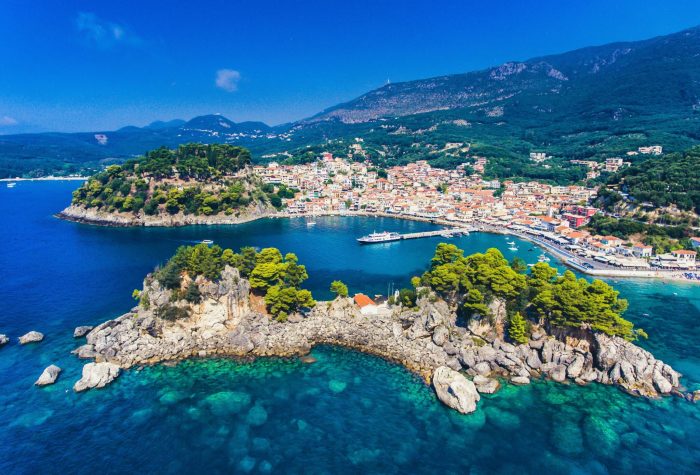
Greece’s beauty goes beyond its ancient ruins and vibrant cities. The country boasts a diverse landscape of mountains, valleys, forests, and beaches, offering a unique blend of natural wonders. From the rugged peaks of Mount Olympus to the serene shores of the Aegean Sea, Greece is a paradise for nature enthusiasts.
The Samaria Gorge, Top 10 Places To Visit In Greece
The Samaria Gorge, located on the island of Crete, is a natural marvel. This impressive gorge is one of the longest in Europe, stretching for 16 kilometers (10 miles). Its rugged terrain, carved by the Samaria River over millennia, features towering cliffs, lush vegetation, and breathtaking views.
Hiking through the gorge is a popular activity, offering a chance to experience the raw beauty of Crete. The trail leads through a diverse ecosystem, including the rare Cretan wild goat, known as the “kri-kri.” The Samaria Gorge is a protected national park, and visitors are encouraged to follow designated trails and respect the fragile environment.
Active Adventures
Greece is not just about ancient ruins and picturesque islands; it’s also a playground for adventure seekers. From hiking through rugged mountains to sailing across crystal-clear waters, Greece offers a plethora of outdoor activities that cater to every adrenaline junkie and nature enthusiast.
Hiking in the Peloponnese
The Peloponnese region, a peninsula in southern Greece, is a hiker’s paradise. Its diverse landscape, ranging from towering mountains to verdant valleys, provides a myriad of trails to explore. Hiking trails in the Peloponnese offer a unique opportunity to immerse oneself in the region’s rich history and natural beauty.
- The Lykaion Mountaintrail, near the ancient city of Megalopolis, leads to the summit where Zeus was believed to have been born. This trail offers stunning panoramic views of the surrounding countryside.
- The Taygetus Mountaintrail, in the Mani region, is a challenging but rewarding hike that takes you through dense forests and past ancient ruins. The trail offers breathtaking views of the Laconian Gulf and the Taygetus range.
- The Mount Parnontrail, near the town of Leonidio, is popular for its rock climbing opportunities. The trail also leads to the ancient ruins of the city of Tegea.
Travel Tips
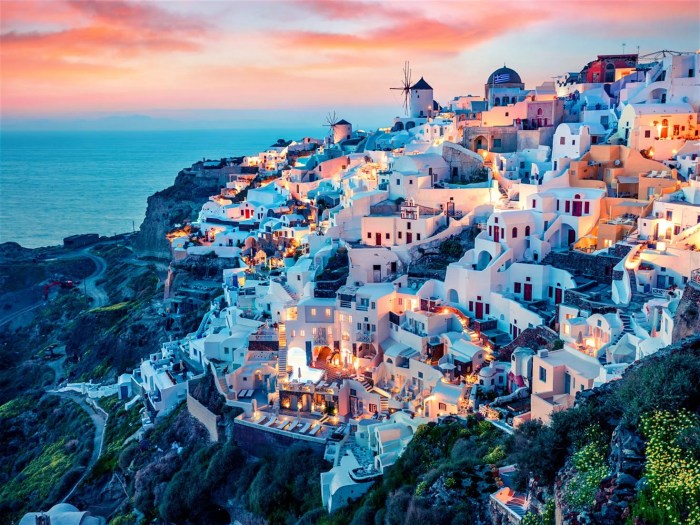
Greece, with its captivating history, breathtaking landscapes, and vibrant culture, is a dream destination for many. To ensure your Greek adventure is as smooth and enjoyable as possible, it’s essential to be prepared. This section will provide practical tips on transportation, accommodation, budgeting, and cultural nuances, empowering you to navigate the enchanting land of Greece with confidence.
Transportation
Greece boasts a well-developed transportation network, offering various options to explore its diverse regions.
Greece is packed with ancient history and breathtaking scenery, making it a must-visit for any traveler. From the Acropolis in Athens to the whitewashed villages of Santorini, there’s something for everyone. If you’re looking for a different kind of historical experience, though, you might want to check out some of Europe’s medieval cities.
Top 10 Medieval Cities To Visit In Europe offers a great list of places to explore, and after you’ve seen some of the incredible architecture and history, you’ll be ready to head back to Greece and soak up the sun on the beaches!
- Flights:Domestic flights are a convenient and time-saving option for traveling between islands and mainland Greece. Major airlines such as Aegean Airlines and Olympic Air offer frequent connections to popular destinations.
- Ferries:Ferries are the lifeline of the Greek islands, providing scenic routes and connections between various islands and mainland ports. The ferry system is extensive, with various ferry operators offering a range of ticket prices and amenities.
- Buses:Buses are a cost-effective way to travel within mainland Greece, connecting major cities and towns. The national bus company, KTEL, operates a comprehensive network, while private bus companies offer additional routes.
- Trains:Train travel is an option for longer journeys within mainland Greece. The Greek Railways (OSE) operates lines connecting major cities, including Athens and Thessaloniki.
- Rental Cars:Renting a car provides flexibility and independence for exploring Greece at your own pace. However, driving in Greece can be challenging due to narrow roads, traffic, and parking limitations, especially in urban areas.
Accommodation
Greece offers a wide range of accommodation options to suit every budget and preference.
- Hotels:From luxurious five-star resorts to budget-friendly guesthouses, hotels are widely available in major cities and tourist destinations.
- Apartments and Villas:Renting apartments or villas provides a more home-like experience and often comes with kitchen facilities, allowing for self-catering.
- Hostels:Hostels are a popular choice for budget travelers, offering shared rooms and social opportunities.
- Camping:Camping is a great option for those seeking a more adventurous and budget-friendly experience, especially in the mainland regions.
Budgeting
Planning your budget is crucial for a stress-free trip.
Greece is totally on my bucket list, especially the islands. I’ve heard Santorini is a must-see, but I’m also really interested in exploring the mainland. I’m also thinking about heading over to Europe this summer, and I’ve been doing some research on Slovenia.
It looks like there are some incredible places to visit, especially if you’re into nature. You should check out this list of Top 10 Places To Visit In Slovenia , it’s super helpful. Once I’ve explored Slovenia, I’m definitely going to book a trip to Greece, maybe even do a road trip around the Peloponnese!
- Accommodation:Accommodation costs can vary significantly depending on location, season, and type of lodging. Budget-friendly options include hostels, guesthouses, and camping.
- Food:Eating out in Greece can be affordable, with delicious and authentic meals available at local tavernas and restaurants. However, costs can increase in tourist areas and for high-end dining experiences.
- Transportation:Transportation costs can vary depending on the mode of travel and distance. Public transportation is generally affordable, while rental cars and domestic flights can be more expensive.
- Activities:Greece offers a wide range of activities, from visiting ancient ruins and museums to exploring islands and enjoying water sports. Entry fees and tour costs can vary depending on the activity.
Best Time to Visit
Greece experiences a Mediterranean climate with hot, dry summers and mild, wet winters.
- Peak Season (June-August):This period offers warm weather and long sunny days, ideal for beach vacations and outdoor activities. However, expect crowded attractions and higher prices.
- Shoulder Season (April-May and September-October):These months offer pleasant weather with fewer crowds and more affordable prices.
- Off-Season (November-March):This period offers cooler temperatures and the possibility of rain. It’s a good time for visiting museums and historical sites with fewer crowds.
Language and Currency
The official language of Greece is Greek. While English is widely spoken in tourist areas, learning a few basic Greek phrases can enhance your travel experience.
- Basic Greek Phrases:“Yia sou” (hello), “Eυχαριστώ” (thank you), “Parakaló” (you’re welcome), “Kaliméra” (good morning), “Kalíspéra” (good evening), “Kalispéra” (good night).
The official currency of Greece is the euro (€).
- Currency Exchange:Currency exchange can be done at banks, ATMs, and exchange bureaus. It’s generally advisable to exchange currency at banks or ATMs for better rates.
Cultural Etiquette
Greece has a rich cultural heritage with unique customs and traditions.
- Greetings:Greeks are generally warm and welcoming. It’s customary to greet people with a handshake or a kiss on both cheeks (especially among friends and family).
- Dining Etiquette:Meals are often shared and enjoyed at a leisurely pace. It’s considered polite to finish your plate and to show appreciation for the food.
- Respect for History and Culture:Greece has a rich history and culture. It’s essential to show respect for historical sites, religious institutions, and local customs.
Conclusion
Greece, a land steeped in history, culture, and breathtaking beauty, offers a unique travel experience that transcends time. From the ancient wonders of the Acropolis to the sun-drenched shores of Santorini, Greece captivates visitors with its enchanting allure. Its diverse landscape, from rugged mountains to sparkling seas, provides endless opportunities for exploration and discovery.
Greece, A Timeless Destination
Greece’s rich history and vibrant culture are interwoven into every aspect of its existence. The ancient ruins, remnants of a glorious past, stand as silent witnesses to the rise and fall of civilizations. The country’s traditions, passed down through generations, are reflected in its art, music, cuisine, and the warm hospitality of its people.
Greece’s natural beauty, with its pristine beaches, crystal-clear waters, and verdant landscapes, provides a serene backdrop for a truly unforgettable journey.Greece is a destination that appeals to all types of travelers, whether seeking a relaxing beach getaway, an adventure-filled expedition, or a cultural immersion.
From the bustling cities to the tranquil islands, Greece offers a kaleidoscope of experiences, leaving a lasting impression on every visitor.
Last Recap
So, pack your bags, grab your sunscreen, and get ready to embark on a journey through the enchanting land of Greece. Whether you’re exploring ancient wonders, hopping between islands, or simply soaking up the sun on pristine beaches, Greece will leave you spellbound.
It’s a destination that stays with you long after you’ve left, a place where history whispers through the ages, and the spirit of adventure never fades.
FAQ Summary
What is the best time to visit Greece?
The best time to visit Greece depends on your preferences. Spring (April-May) and autumn (September-October) offer pleasant weather and fewer crowds, while summer (June-August) is peak season with warm temperatures and vibrant nightlife.
How much does it cost to travel to Greece?
The cost of traveling to Greece varies depending on your travel style and budget. Accommodation, transportation, and food can range from budget-friendly to luxurious, so it’s best to plan accordingly.
What is the currency used in Greece?
The official currency of Greece is the Euro (€).

